Rabbish Rahli Sadri Dua In English, Arabic Text and Benefits
Advertisements
Rabbish rahli sadri dua is a beautiful supliclation, Prophet Musa asked Allah to clear his chest, to make this mission of his easy, to let the knot of his tongue be loosened so that people can understand what he says.
Rabbish Rahli Sadri Dua Meaning In English
Rabbish Rahli Sadri means My Lord, expand my chest for me. And ease my affair for me. And untie the knot from my tongue. So that they may understand my speech.
Rabbish Rahli Sadri In Arabic Text
The full Dua is written in Arabic as:
رَبِّ اشْرَحْ لِي صَدْرِ (٢٥) وَيَسِّرْ لِي أَمْرِي (٢٦) وَاحْلُلْ عُقْدَةً مِّن لِّسَانِي (٢٧) يَفْقَهُوا قَوْلِي (٢٨)
Rabbish Rah li Sadri Transliteration
The dua is transliterated as Rabbish rahli sadri wa yassirli amri wah lul uqdatan min lisaani, yaf kahu kauli.
Advertisements
Which Surah Has Rabbish Rahli Sadri?
The surah that has rabbish rahli is surah Daha (Taha). It is ordered chapter 20 in the Qur’an. Surah Taha has 131 verses. Rabbish Rahli Dua is from verse 25-28.
- READ ALSO: Rabbi Inni Lima Anzalta Ilayya Dua
- Rabbi Jalni Muqimas Salati Dua
- Dua for breaking fast
Rabbish Rahli Sadri Wa Yassirli Amri Wah Lul Uqdatan Min Commentary
(Musa) said: ”O my Lord! Open for me my chest, and ease my task for me.”
Musa requested his Lord to expand his chest for his mission. For verily, He was commanding him with a great task and a weighty affair.
He was sending him to the mightiest king on the face of the earth at that time. He was the most arrogant and severe of all people in his disbelief, and He had the largest army and the most powerful kingdom.
He was the most tyrannical and the most obstinate of rulers. His case was such that he claimed not to know Allah at all, and that he knew of no god for his subjects other than himself.
Advertisements
Along with this, Musa lived in his home for a period of time as a child. He stayed in Fir`awn’s own room and slept on his bed.
Then, after this, he killed one of their people and feared that they would retaliate by killing him in return. Thus, he fled from them and remained an outlaw during this entire time.
Then, after all of this, His Lord sent him to them as a warner calling them to worship Allah alone, without associating partners with Him.
This is why he said, O my Lord! Open for me my chest, and ease my task for me.
This means, “I cannot perform this task if You do not help me, aid me and support me.”
And loosen the knot from my tongue, that they understand my speech.
This is referring to the lisp that he had.
This lisp was a result of an incident when he was presented a date and a hot coal stone and he placed the coal on his tongue instead of the date.
However, he did not ask Allah to remove this affliction all together. Rather, he asked for removal of his stammering so the people would understand what he intended in his speech.
He was only asking for what was necessary to deliver his message. If he had asked for the removal of his affliction in its entirety, it would have been cured for him.
However, the Prophets do not ask for any more than what is required. Therefore, he was left with the remnants of this accident that took place with his tongue. Allah informed of what Fir`awn said concerning him,
Am I not better than this one who is despicable and can scarcely express himself clearly! (43:52)
This means that he is not eloquent in speech. Taken from Tafsir Ibn Katheer.
This dua is mentioned in the book of our Lord Almighty to the Prophet of God, Musa (Moses), peace be upon him.
He asked Allah Subhanahu Wata’ala, for a big and great matter.
This happened when Allah commanded him to call the most powerful people of the earth in disbelief, tyranny, and the most armed, who claimed divinity falsely.
There are different and many stories of Prophet Musa, peace be upon him, in the Book of Allah.
Since this matter was a matter of great importance and danger, he asked Allah to grant him some of the demands and purposes that would help him in his calling.
For supplication is the believer’s weapon by which he seeks victory, by which he brings good deeds and repels evils, and the servant asks his Lord with a full optimism of Him.
For this supplication, Allah Grant his request according to his pure belief in his Generous Lord
The Prophet (SAW) said, “Allah says:
‘I am just as My slave thinks I am, (i.e. I am able to do for him what he thinks I can do for him) and I am with him if He remembers Me.
If he remembers Me in himself, I too, remember him in Myself; and if he remembers Me in a group of people, I remember him in a group that is better than they; and if he comes one span nearer to Me, I go one cubit nearer to him; and if he comes one cubit nearer to Me, I go a distance of two outstretched arms nearer to him; and if he comes to Me walking, I go to him running.’
Sahih Bukhari 7405
He began by saying: “My Lord, expand my chest for me”:
That is, expand it with light, faith, and wisdom so that I can bear all kinds of harm, both verbal and physical.
The openness of the chest transforms the hardship of the assignment into comfort, bliss, and ease.
And His saying: “And make my affair easy for me”
This means that every matter that I take, and every path that I take in your path, is made easy for me, and the hardships in front of me are made easy for me.
The scholar, Ibn Saadi, may God have mercy on him, said:
And from facilitating the matter is to make it easy for the caller to come to all matters from their doors, address each one with what suits him, and invite him in the nearest way that leads to the acceptance of his saying.
Since the most important means of calling to God is the ability of the caller to explain and make him understand by saying:
And untie the knot from my tongue, then they may understand my speech.
In this he sought success in speaking well in calling to God in people’s speech, influencing their minds and emotions with wisdom by saying, and with kindness in action.
And his request, peace be upon him, to his Lord to remove his (the lisp) from him.
That is when he was offered the date and the coal, so he took the coal and put it on his tongue when he was young in the house of Asiyah, the wife of Pharaoh.
And he, peace be upon him, did not ask that it be completely removed from his tongue, but rather that the consciousness would be removed, and he would have an understanding of what is intended from him, which is as much as needed.
And after this, Prophet Musa asked Allah the following:
- And grant me a helper from my family
- Harun (Aaron), my brother.
- Strengthen me through him
- And let him share my task
- So that we may glorify You much
- And remember You much For truly
- You have always been overseeing us.
Surah Taha verses 29-35
This blessed dua included asking God Almighty for assistance in matters of religion such as worship, obedience, remembrance, and glorification.
For this reason, it is delegated to the one who supplicates to mention the reason for his supplication, especially if it is a matter of religion.
Rabbi Sharah Li Sadri Benefits
- There is a statement about the virtue of remembrance: “Indeed, the orbit of all acts of worship and the entire religion revolves around the remembrance of Allah.”
- Supplication is the worship for which creation was brought into existence.
- Verily, remembrance aids the servant in performing acts of obedience, even in adversity, and makes it easy for him to stand before the tyrants.
- There is virtue in glorification because it is an extension of remembrance, and it encompasses the specific by virtue of its greatness. It is among the great means of salvation from the feared and the attainment of the desired. Thus, the prophets turned to Allah in their hardships, as seen in the supplication of the Prophet Yunus:
- “There is no deity except You; exalted are You. Indeed, I have been of the wrongdoers.”
- Worshiping with the names and attributes of Allah has a great impact on the slave’s servitude to the Lord of the worlds, as stated in His words: “Indeed, You have been, of us, Seeing.” For each name and attribute, there is a unique form of servitude and a yield.
- The importance of elaboration in supplication and its desirability: “The more the servant increases, prolongs, repeats, and diversifies his supplication, the more effective it is in servitude, humility, closeness to his Lord, and the greater its reward.” For instance, Prophet Musa did not abbreviate his supplication by saying, “O Allah, help me or grant me success,” but he listed his requests and inquiries.
- The demands of religion are the greatest demands and the noblest ranks that every supplicant should take care of.
- The supplicant should combine his supplication with its prerequisites and complements to expend efforts, striving for the means, and sincerely seeking his goal. He asked his Lord for assistance and then proceeded with his supplication, combining both prayer and the means to achieve his desired outcome.
Advertisements

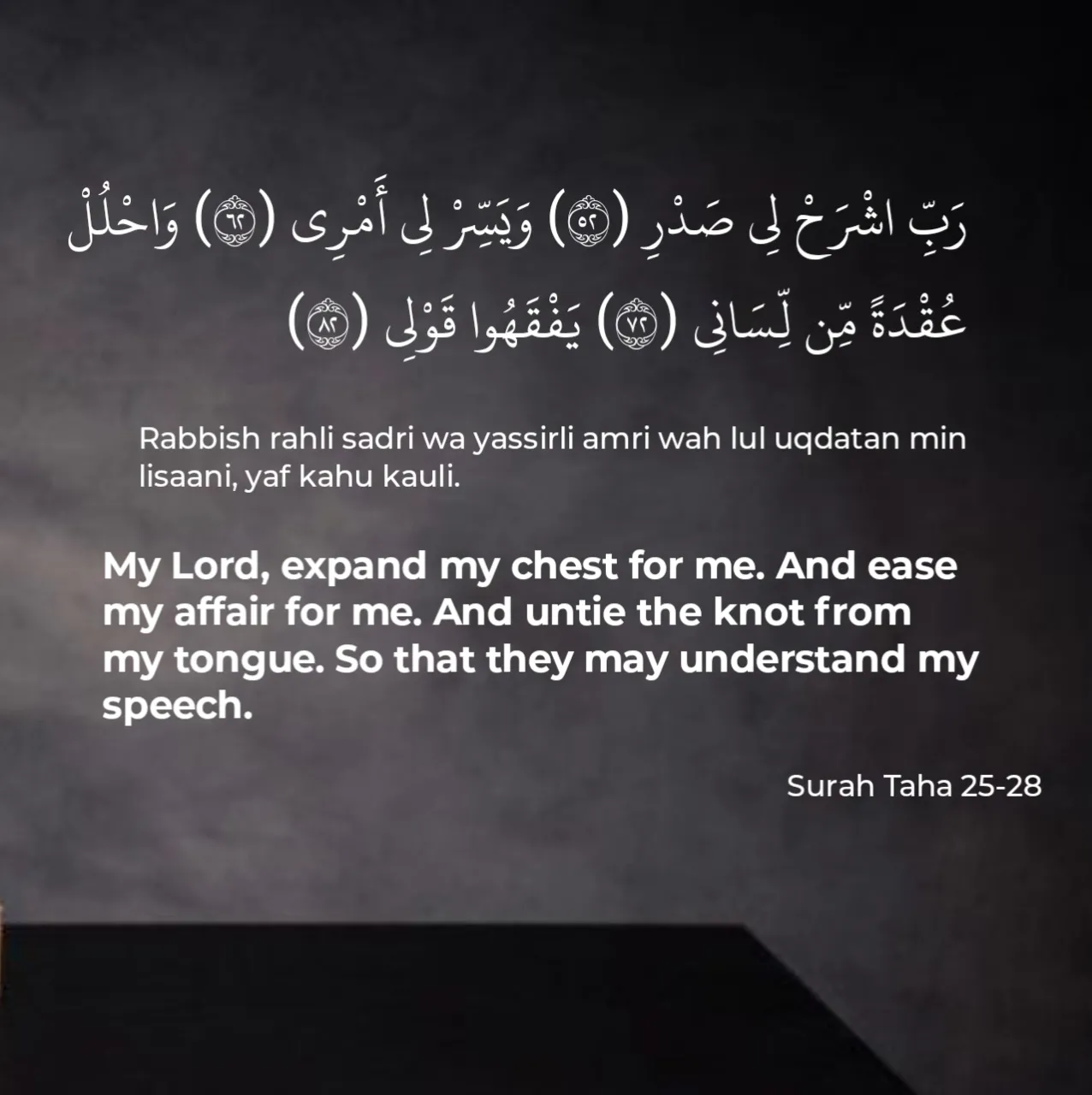
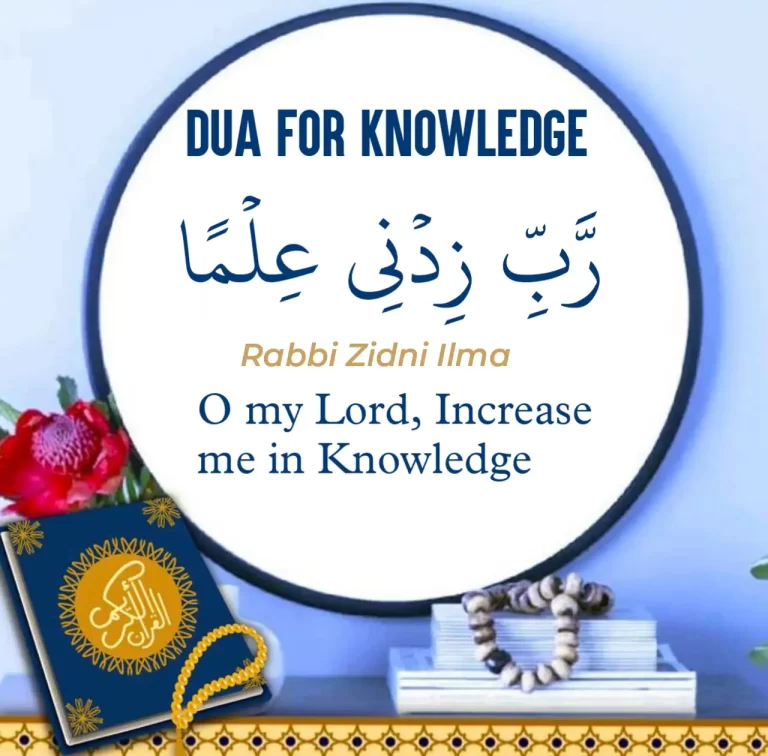
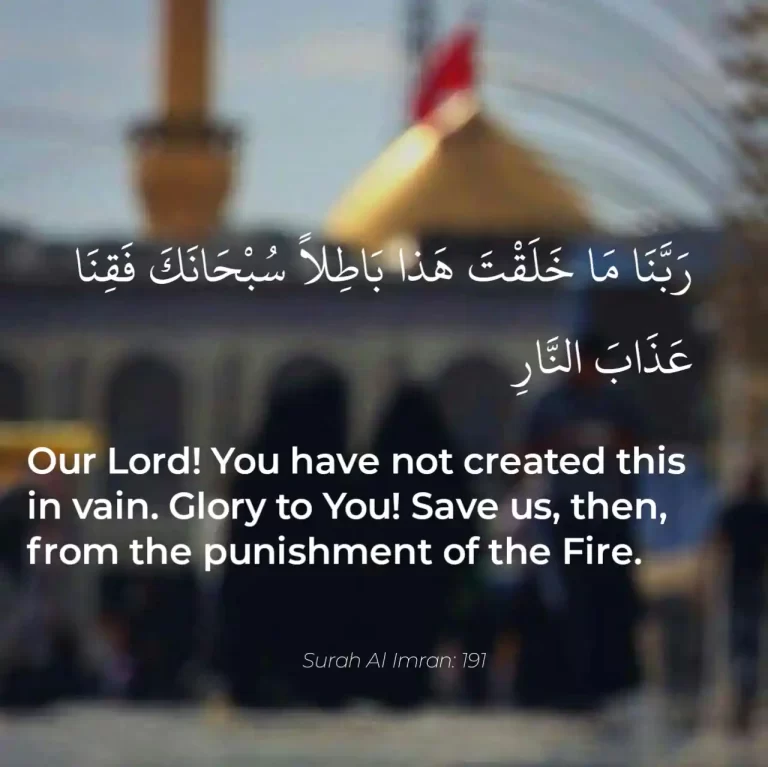
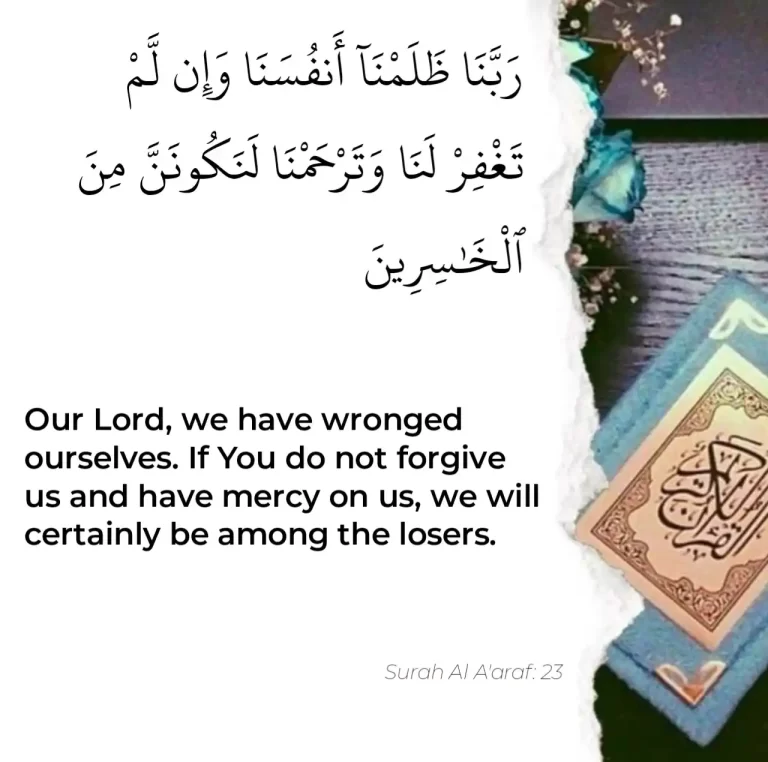
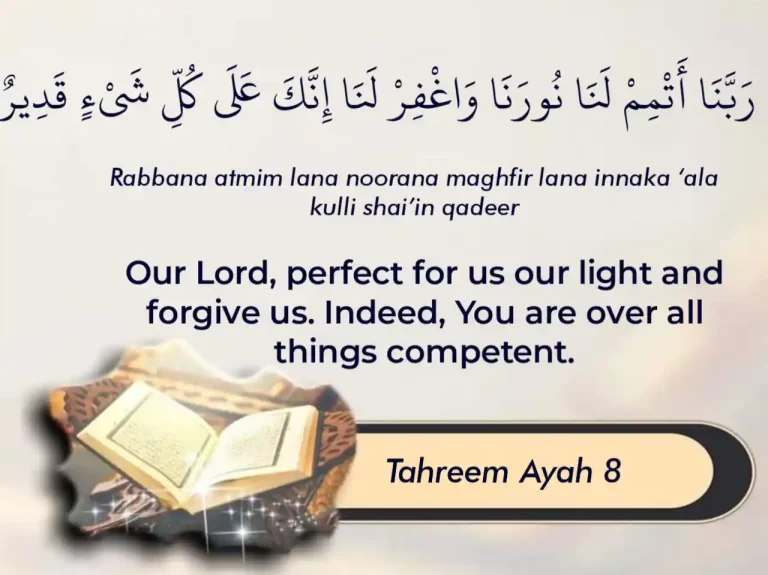
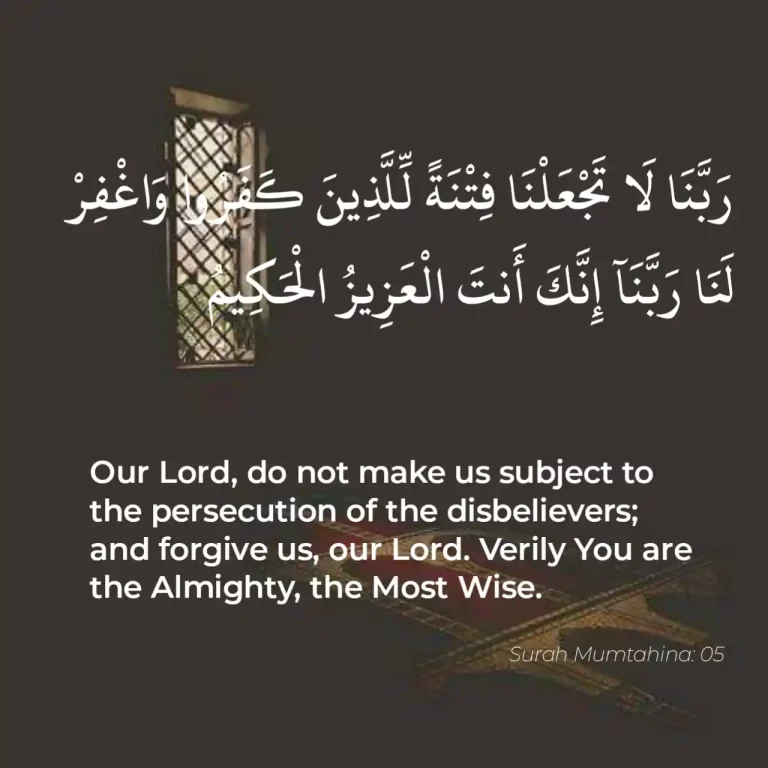
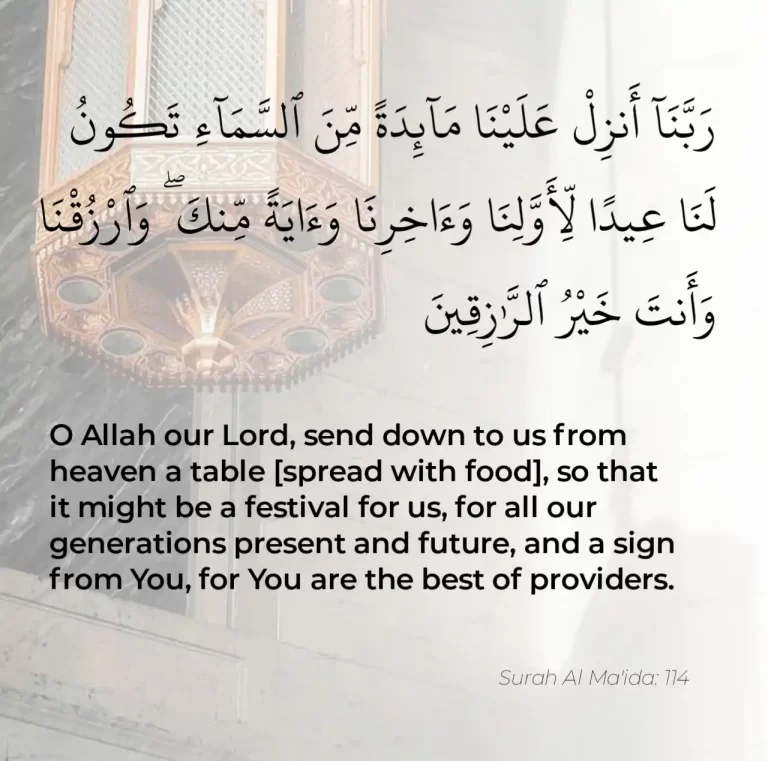
4 Comments